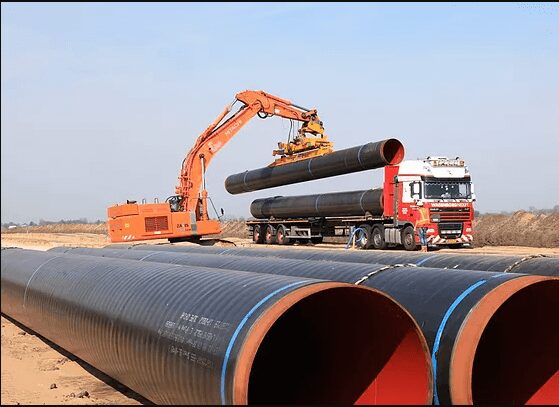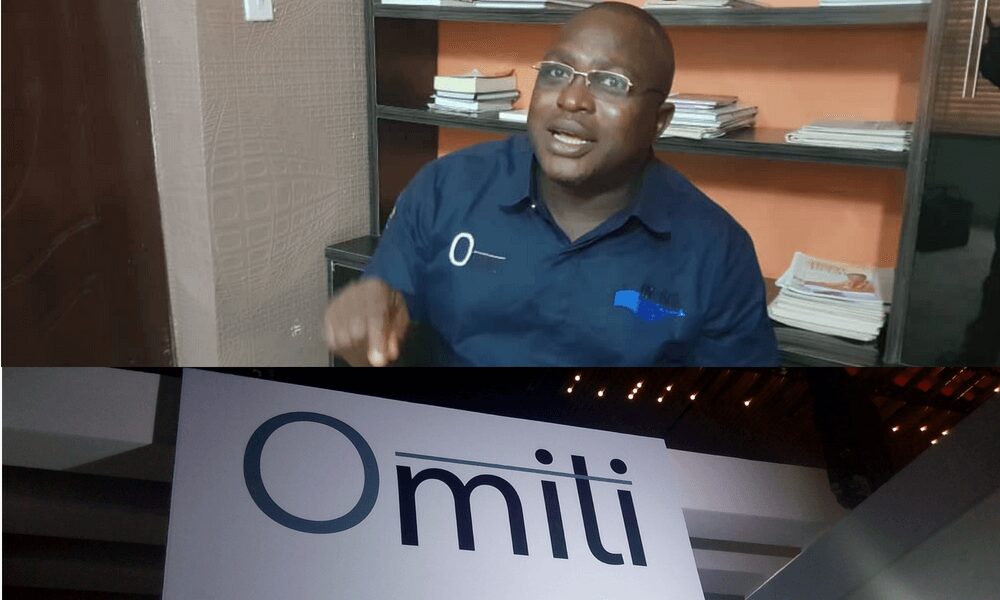‘Why Omiti Is The Only Indigenous Coy In Dangote Refinery Project’
Just six years since its entry to the oil and gas exploration and construction industry, Omiti Engineering Nigeria Limited has demonstrated proficiency in delivering on highly complex projects which has gained it traction and positioned it as an indigenous industry leader.
Incorporated in 2012 in association with Omiti PVT Limited in India, Omiti Engineering FZE has embarked on wide range of projects, recent being the construction of concrete foundation works, collection of pipes, pipe fittings, accessories and the fabrication and installation of underground piping works amongst others at the ongoing $12 billion Dangote Refinery in Lagos.
In demonstration of its prime position in the oil and gas sector, Omiti Engineering showcased their latest products and services at the just concluded 2018 Nigeria Oil and Gas Conference and Exhibition that held at the International Conference Center (ICC) in Abuja.
In an interview with THE WHISTLER on the sidelines of the NOG Conference, the Managing Director/Chief Executive Officer, Engr. Nduka Nwosu, briefed our correspondent, Tayo Olu, on some of the company’s recent projects as well as the challenges and potential in the Nigeria energy sector. Excerpts:
Projects Omiti Engineering is handling?
Advertisement
Nwosu: We have been involved in various projects ranging from pipeline construction, process piping construction, equipment installation of oil and gas to ensure there is proper flow of oil or refined products
We’ve worked for various oil industries ranging from Mobil, PNG Gas, SPEC Oil & Gas, we also have worked for a couple of indigenous companies in Nigeria.
Currently, we are the only Nigerian company working at the 650, 000 barrels-per-day Dangote Oil Refinery located at the Lekki Free Trade Zone.

Lagos, Nigeria
Advertisement
How was Omiti selected as the only Nigerian company currently working at the Dangote Refinery?
Nwosu: We competed with various global companies, pre-qualified the same way others pre-qualified technically and we crossed those stages and went further to commercial before excelling in three of the packages out the 14 bids we did.
Currently, the work volume we are doing at the site is massive. The Dangote Refinery, which started two years ago and is to last for four years, wants to start trading by importing refined fuel the way it is being done at the moment and pass it through this import line and take it to the trading facility where you have storage tanks. The storage tanks are also being expedited so that at the end of next year, this would be commissioned so that they start getting refined products into the system.
Furthermore, while they are installing the process equipment which is over 70% completed overseas and because of the readiness of the foundation which is going on, Julius Berger and a couple of Chinese and Indian companies are working on the foundation, drainage and roads in the facility. Once the foundation is ready for the equipment, they would start shipping the equipment to the site in such a way that once they arrive, they would be offloaded directly to the foundations instead of double-handling.
So, one of the things they have achieved is getting a jetty near the Dangote Refinery site so that most of the ODCs (Over Dimensional Cargos) would come straight to their jetty and is moved to the site in such a way that it is easy to handle”
Advertisement
Omiti’s other fields of specialization?
Nwosu: We are also into gas flare reduction or elimination in the oil industry. Gas flares constitute pollution to the community and because of pollution, communities affected are paid fine.
What we have done is to partner with an overseas company called Hy-Bon Engineering is to reduce the flare and or further reduce it to zero flaring or best monetize it. The monetization would be in form of converting them to useful gases that would be used like LPG and a couple of other gases or converting the compressed gases to power.
So, we have a partner in Texas that we are working with and we are even available for building transfer systems where we fund and operate it before transferring back to the clients and over a period of time we share profits instead of them losing money.
Ending gas flaring by oil and gas companies in Nigeria?
Nwosu: That is one of the presentations we have made to the Nigerian National Petroleum Corporation (NNPC) and we would also continue following up with the NNPC and its subsidiaries like the National Petroleum Investment Management Services to get approval as well as involve the owners of the facilities like Chevron, Shell and others who have gas flaring in their systems to introduce us to them so we can start the project. As we speak, we are willing and ready to be involved and our partner (Hy-Bon Engineering) has financial partners who are also willing once we are using their equipment which has been tested all over the world. By so doing, you the operator does not have to spend money, what you have to do is provide your facility or give us access so we take off the flares and monetize them and share in the gain.
Advertisement
So Omiti and partners are capable of reducing gas flaring once there is an approval?
Nwosu: Yes. The investment is however tied to the volume of flare in a particular facility. Once we can get something in the range of 10, 000 cubic meter it means it is a good volume to start with and the first stage of the planned reduction is to convert some of the heavies and bring them down to usable products and if we have grid that can take power on that, we can also convert it to power.
So, we will have to investigate and try to see the type of power grid close to that area because the power option is a quick return on investment compared to other options that we can use the gas for.
So Nigeria has marketable volume of gas being flared?
We have gas in commercial and excess quantity. The global result shows that either Nigeria or Russia has the highest volume of gas deposits. But there are some empirical data that haven’t been validated.
So both countries are the highest gas flaring nations meaning in effect that the country has excess gas to cater for its energy needs.
Challenges faced by Omiti Engineering and other similar companies?
Nwosu: Challenges are natural in a country like Nigeria when it comes to project execution. The oil and gas industry is not like politics. Rather it is a project whereby contracts are structured in such a way that once you mobilize to site, you get payment based on your agreement with the client. The rest would be that as you work they pay you either on a monthly basis or milestone basis and this means you have to secure funds to do the job. So, as a Nigerian company, cost of funding are very high and it has been a very big problem and that’s why most times you see stiff competition between foreign companies and us.
So, we are working very hard to bridge that gap because we also have overseas partners and we are also trying to raise capital to meet up with the volume of work we are doing. But basically what we have is still carrying us along but we believe that if the situation in the country is improved in terms of funding cost, things would be much better.
What the Federal Government can do to encourage indigenous players in the oil and gas sector?
We must give kudos to the Nigerian content division. I can say they have done much to ensure that local companies participate in major oil and gas construction activities. As a Nigerian company, when we go to local regions in the communities there is also a mandate to engage the locals as much as possible. On the technical side of it, we train them to be technically sound.
For instance, in the Dangote Oil Refinery project, it is written boldly in the contract that you need to meet with the communities and engage a certain level of people to ensure they participate. So the government enforcing this participation in construction activities is very key. However, there is need for close supervision and enforcement to sure all the International Oil Companies (IOCs) comply.



